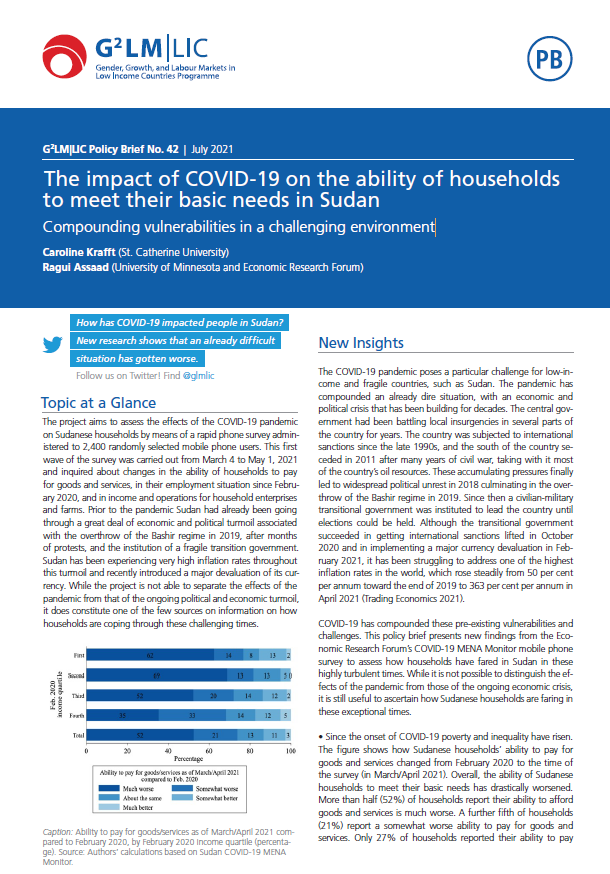The COVID-19 pandemic poses a particular challenge for low-income and fragile countries, such as Sudan. A G2LM|LIC project assesses the effects of the COVID-19 pandemic on Sudanese households by means of a rapid phone survey administered to 2,400 randomly selected mobile phone users. This policy brief presents new findings from the Economic Research Forum’s COVID-19 MENA Monitor mobile phone survey to assess how households have fared in Sudan in these highly turbulent times. The Investigators find that poverty and inequality have risen since the onset of COVID-19. Not only have COVID-19 and concurrent challenges reduced the ability of Sudanese households to meet their needs and worsened poverty overall, they have also exacerbated inequality. For instance, 62% of households in the first (poorest) quartile and 69% in the second quartile reported their spending power was “much worse” in early 2021 compared to February 2020.
Only 11% of households reported they received regular social assistance (primarily Zakat bureau, 5%, and World Food Program, 4%). Only 9% of households had received emergency assistance in the past month (primarily the Selaaty commodity support program, 6%). The limited social safety net means that job and income losses translate directly into negative outcomes, such as food insecurity. The findings suggest that an expansion of Sudan’s social safety net is sorely needed to cushion the impact of COVID-19 on household. Read the detailed policy brief here.
